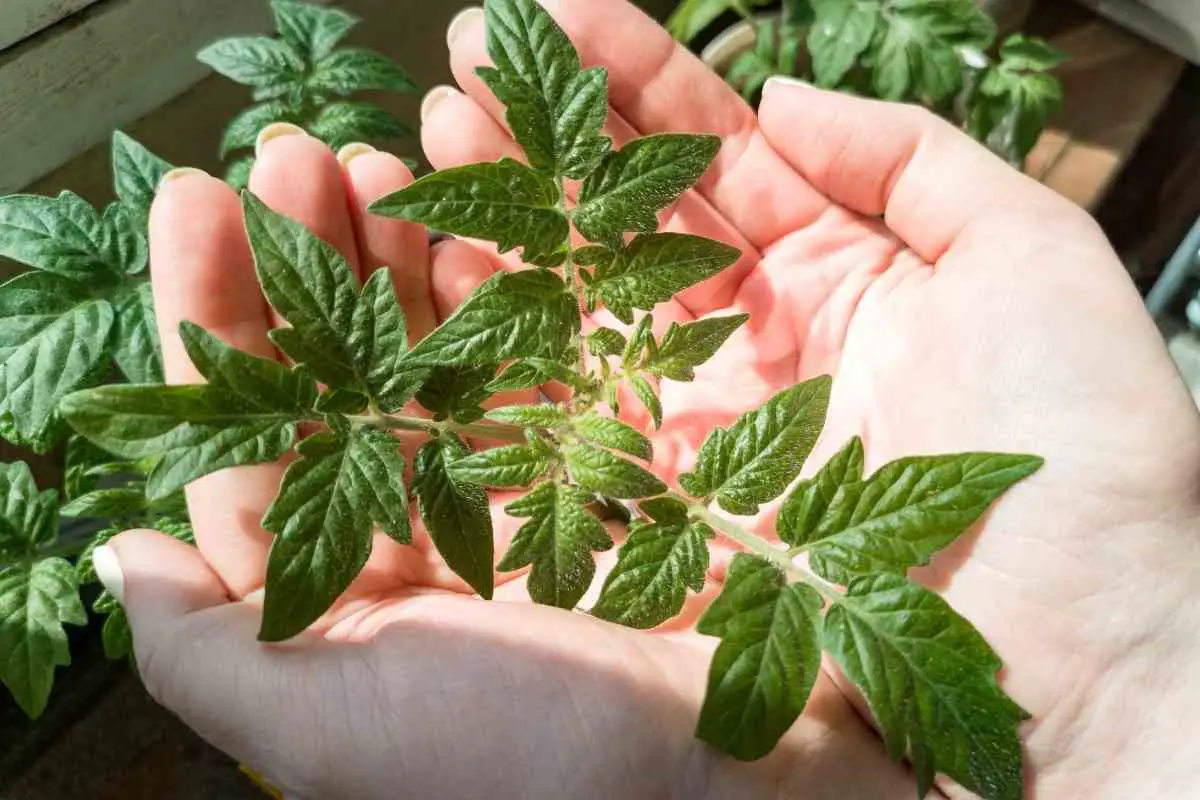Tomatoes make meals better, whether cooked or raw.
But, can you eat other parts besides the fruits? It’s unconventional to eat tomato leaves, explaining why most people are unsure about the edibility of this part.
Can you eat tomato leaves?
In reality, tomato leaves are safe for human consumption. However, they can be harmful if consumed in large quantities.
The toxicity of tomato leaves depends on the consumer’s health conditions and habits. The leaves contain chlorophyll and water, which improve physical well-being.
However, they also have tomatine, which causes diarrhea and other complications. Generally, tomatoes cause problems for those with nightshade allergies.
So, what makes eating tomato leaves unconventional?
Why People Don’t Like Tomato Leaves
It’s uncommon to see people consuming tomato leaves for the following reasons.
Tomato leaves contain toxic alkaloids
Tomato leaves are mainly unpopular because they contain alkaloids such as tomatine and solanine.
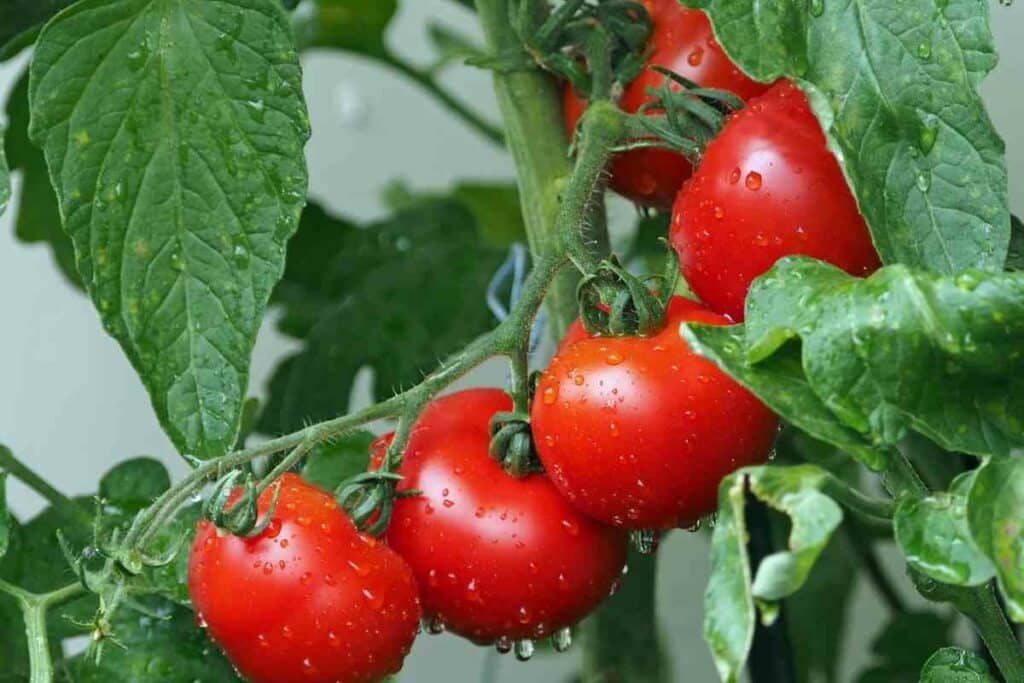
Alkaloids are useful to tomatoes and other edible plants. They protect plants against animals, insects, and microorganisms like bacteria and fungi. Some people consider them toxic.
Keep In Mind – There’s no denying that tomatine can be harmful. However, its toxicity is exaggerated. You can only experience side effects if you consume one pound (450 g) of tomato leaves, which is impractical.
Moreover, mammals absorb glycoalkaloids poorly. Most pass through the gut untouched to the kidneys and rectum for excretion.
Sensitive individuals are likely to experience a minor stomach upset, but this only occurs after ingesting unrealistic amounts of tomato leaves.
Tomato leaves are harmful to dogs
It’s a well-known fact that dogs can die after consuming tomato leaves or unripe tomatoes.
Tomatine is deadly to canines, especially if ingested in large quantities. This usually happens to stray dogs whose owners don’t check their diets.

The effects of tomato leaves are particularly pronounced on small dogs.
Symptoms include vomiting and diarrhea. Sometimes, you might need to take the dog to a vet. But are the effects the same on humans?
People and dogs have different digestive systems.
Some foods humans eat are harmful to dogs, including:
- chocolate
- garlic
- grapes
- onions
- and raisins
Tomato leaves might be deadly to dogs, but they don’t have similar effects on human beings.
Tomatoes belong to the nightshade family
The nightshade family is diverse.
It comprises edibles like eggplants, peppers, potatoes, tomatillos, and tomatoes.
It also has toxic plants like black henbane, belladonna (deadly nightshade), foxglove, larkspur, and mandrake.
Belladonnas aren’t entirely deadly, despite the nickname. It’s the berries that contain poison.
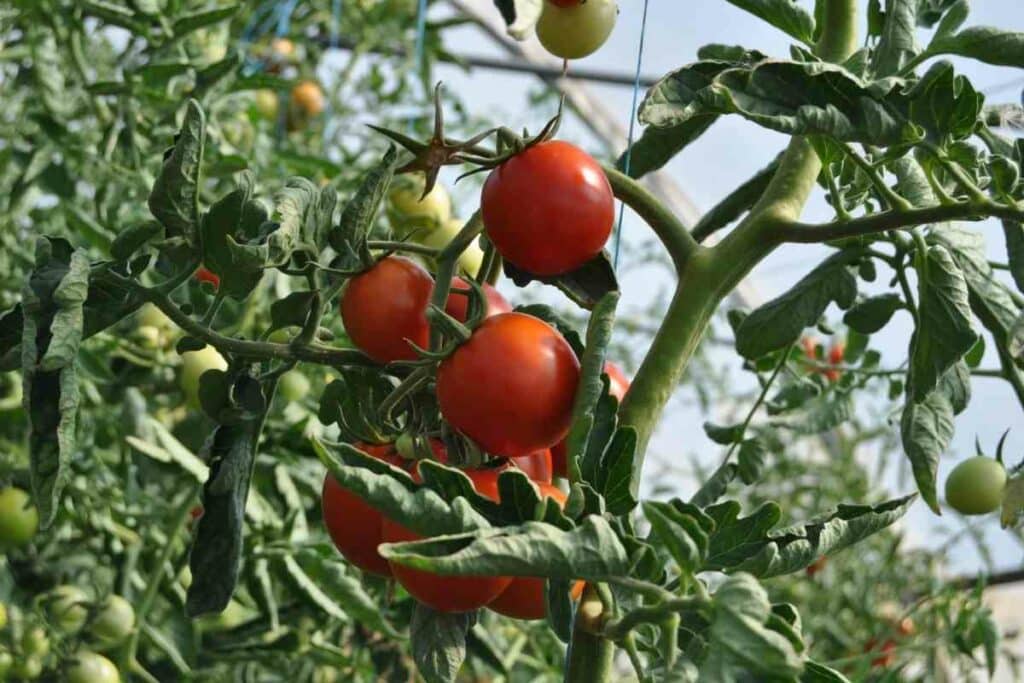
The stem and leaves are herbal medicines for gut problems, enhancing beauty, and relaxing muscles.
That said, tomato leaves don’t contain the deadly toxins in belladonna berries.
Tomato leaves make insecticides
Organic farmers use tomato leaves to control aphid infestations.
To some people, this means tomato leaves contain the harmful chemicals in conventional insecticides.
Remember – Tomatine is a glycoalkaloid with antifungal properties. Therefore, tomato leaves make a practical, organic pesticide.
You can also use the stem since it has a higher chemical concentration. The tomatine in the spray is harmless, provided you aren’t allergic to tomatoes.
Tomato leaves are unavailable commercially
Tomato leaves don’t appear in many recipes as the plant’s fruits.
It isn’t easy to spot an outlet that sells tomato leaves. However, this doesn’t mean that they are inedible.
How to Use Tomato Leaves
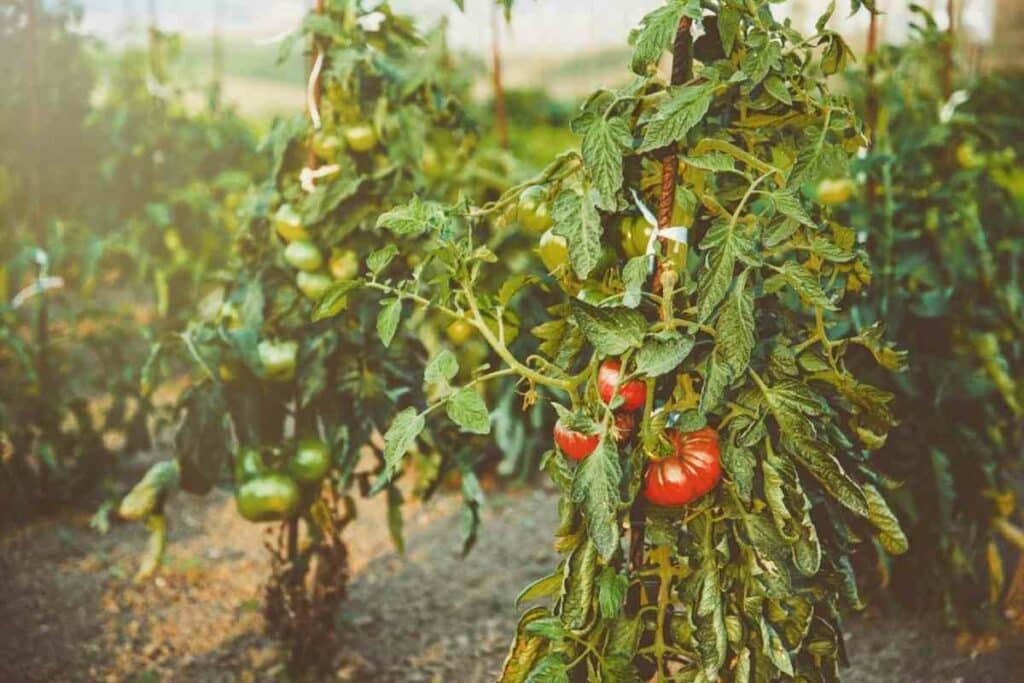
Here’s how you can use tomato leaves.
Cooking
Tomato leaves work best as an infusion that concentrates the flavor of tomato fruits.
For instance, you can infuse leaves in fish sauce and use them to garnish rice or fried fish.
Additionally – Tomato leaves make great pasta and pizza toppings when fried. Dried leaves are good for seasoning noodles, pizzas, and other pastries.
Tomato leaves have a strong aroma, making them a perfect addition to a spicy mixture containing basil, mint, and other herbs.
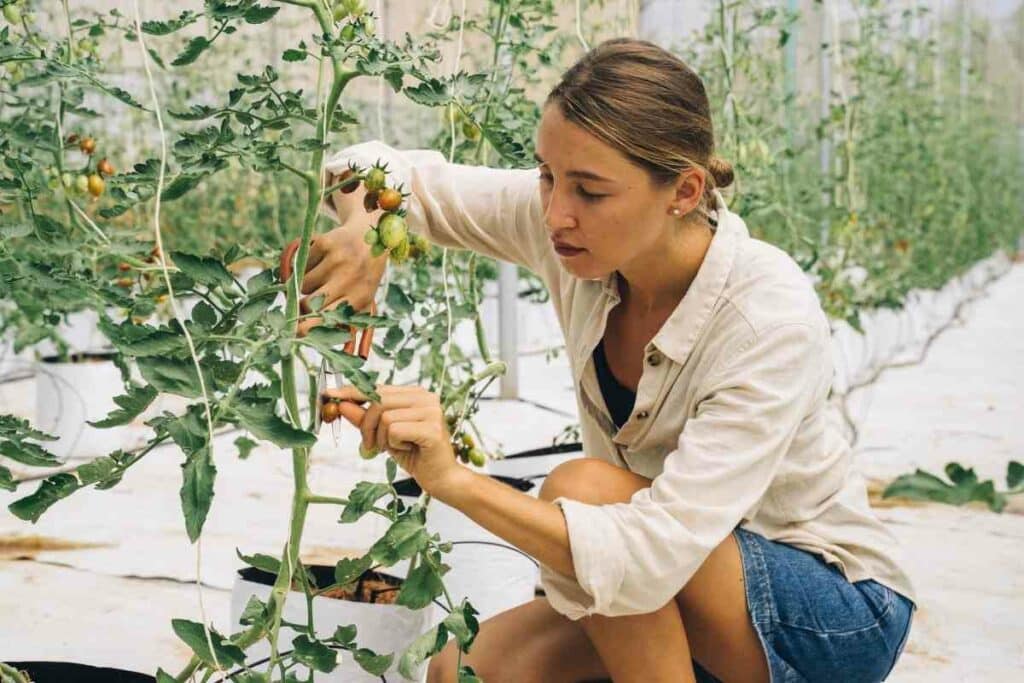
Medicine
Studies show that tomato leaves and stems contain polyphenols.
These micronutrients help plants maintain health and fight pathogens.
Even better, tomatine inhibits the development of cancerous cells. Precisely, it suppresses breast, colon, liver, and stomach tumors. Sometimes, it kills cancerous cells.
Tomatine helps fight cancer. Since tomato leaves are harmless to most people, eating them lowers the risk of contracting this deadly condition.
Pesticide
As mentioned earlier, tomato leaves effectively fight aphids and other pests.
To prepare the pesticide:
- Chop and soak the leaves in water for a day.
- Then, use the spray on the affected plants.
- Tomato leaf spray is a better alternative to conventional insecticides.
It’s organic and doesn’t pollute the environment or contaminate your food like its competition.
Symptoms of Tomato Leaf Poisoning
Tomato leaves have a strong scent and hairy surface that turn away many animals.
However, adventurous pets like puppies eat them out of curiosity.
When that happens, they’re likely to start vomiting or experiencing diarrhea. Like humans, the symptoms are more severe as the ingestion increases.
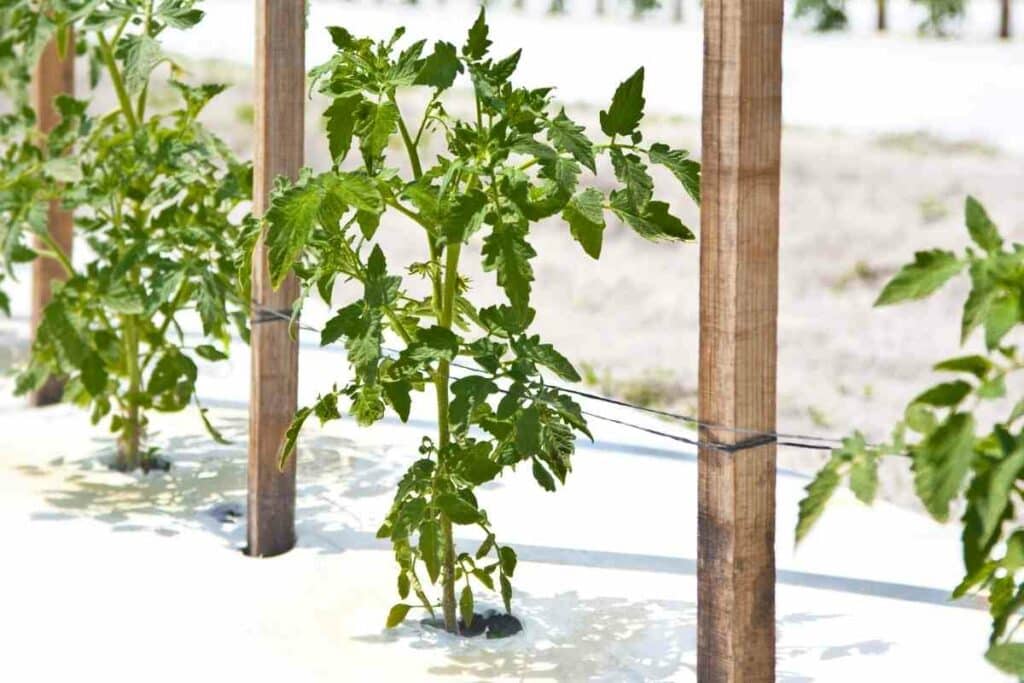
Besides tomatine, tomato leaves contain another mild toxin called atropine.
Atropine increases the risk of stomach upsets, especially when combined with hot peppers and other strong spices.
Unverified reports state that atropine and tomatine increase susceptibility to arthritis.
Generally, avoiding tomato products is wise if you’re sensitive to alkaloids.
Heads Up! Some drugs and dietary restrictions also advise against taking tomatoes. Please consult your doctor or dietician before taking the leaves.
People also ask
Are tomato leaves poisonous?
Tomato leaves contain mind toxins like atropine, tomatine, and solanine. These substances manifest quickly in dogs and smaller animals.
A human being must consume at least one pound of leaves to experience symptoms, which is impractical.
Does cooking destroy toxic substances?
Some claim that cooking destroys solanine and tomatine, making tomato leaves safe for everyone.
In reality, it doesn’t. The two are stable and don’t disintegrate easily, even under high temperatures.
However, they’re soluble in water. Therefore, draining the water after boiling the leaves is an effective way of reducing toxicity.
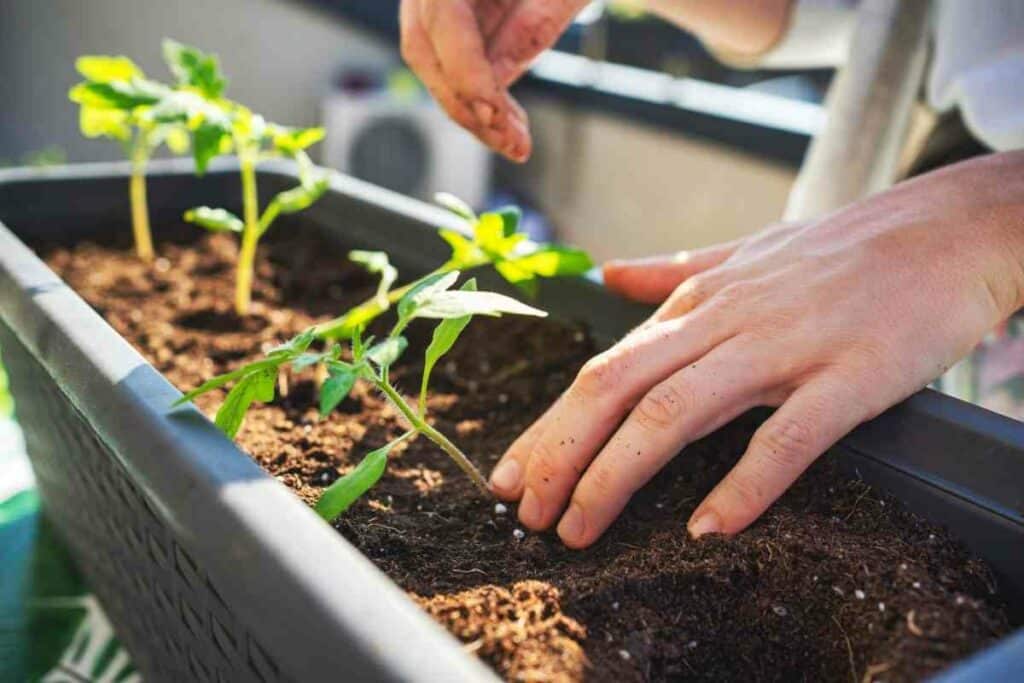
What are the benefits of tomato leaves?
Tomato leaves are a valuable addition to meals. You can use them as a garnish or for seasoning. Additionally, the leaves have medicinal properties.
They suppress the spreading of cancerous cells and can even kill malignant tumors. Lastly, the antifungal agents in tomatine and solanine help fight farm pests.
What are the side effects of tomato leaves?
If you ingest large amounts of tomato leaves, you will experience vomiting and diarrhea.
These side effects correlate with body size – smaller people have severe symptoms. Also, tomato leaves trigger allergic reactions in sensitive people.
Should you eat tomato leaves?
It depends on your preference. Although they aren’t as eye-catching or juicy as the fruits, tomato leaves add flavor to baked foods and fish.
Consuming leaves also reduces cancer’s effects and lowers the risk of malignancy.
Final Words
Many people avoid eating tomato leaves because they believe they are poisonous. However, this isn’t true.
The misconception that tomato leaves are toxic stems from several factors. First, tomatoes contain alkaloids.
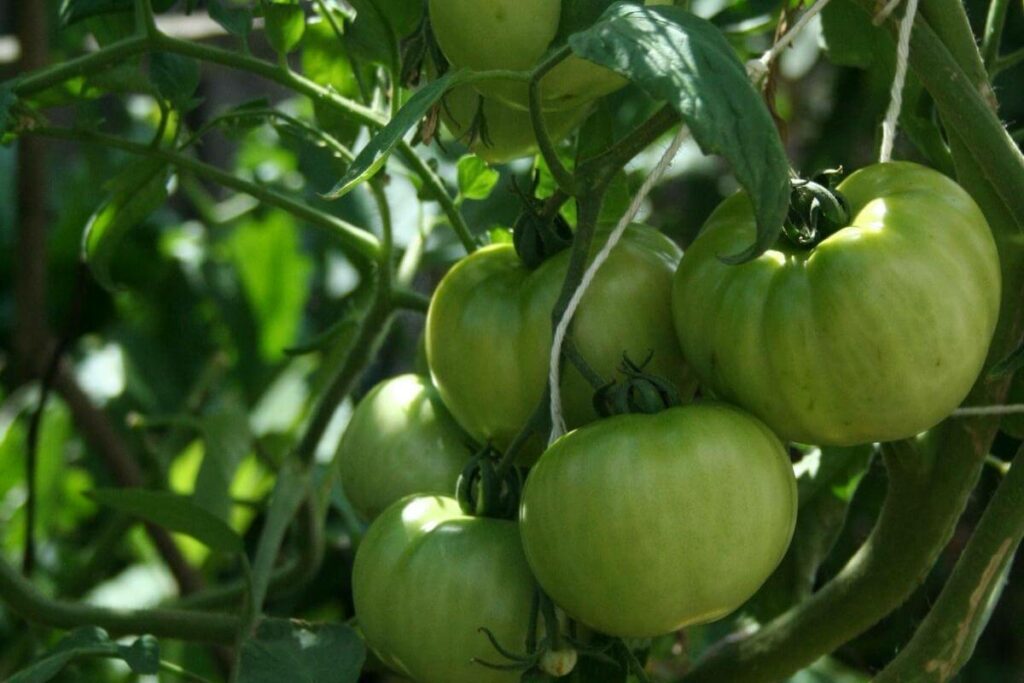
Secondly, tomatoes are part of the nightshade family. Other reasons include their use of pesticides, effects on dogs, and unavailability in stores.
Like other ‘toxic’ plants, tomato leaves hurt you if ingested in large, impractical amounts. It takes at least one pound to start experiencing diarrhea and vomiting.
Moreover, these symptoms go away after a few hours, and hospitalization is rarely needed.
Eating the right amounts of tomato leaves is beneficial. The leaves have powerful antioxidants that improve your overall health.
Research shows that the leaves can suppress and kill cancer cells. Besides, you can use the leaves to enhance flavor and seasoning.
That said, it’s wise to consult a doctor or a nutritionist if you’re under medication. This is because the leaves can affect the effectiveness of your dosage. It also helps to avoid tomato products if you’re allergic.
